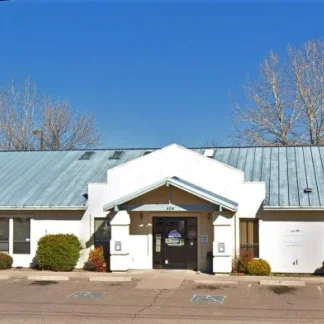AA - Alcoholics Anonymous - West Main Street
AA - Alcoholics Anonymous West Main Street provides alcohol and drug rehab servi...
Southwest Behavioral Health Services - Empowerment Center, located in Payson, Arizona, provides a wide variety of community services to men and women seeking recovery. If addiction is the primary diagnosis, clients may be referred to a drug rehab or outpatient addiction treatment center.
Southwest Behavioral Health Services – Empowerment Center supports individuals seeking help throughout the county. Their programs are offered on an outpatient basis.
Outpatient Treatment The outpatient program offers employment services, personal care services, groups and classes, and peer services. Referrals may be placed to higher levels of care if needed.
Private Insurance Southwest Behavioral Health Services – Empowerment Center accepts most insurance plans, including MercyCare, Molina, United Healthcare, Care 1st, Arizona Complete Health, and ACCCCS. Out of network benefits may vary, so it’s important to verify coverage with your insurance provider.
Contact us for more information: (928) 474-2668

Connect with Southwest Behavioral Health Services - Empowerment Center by calling their admissions team directly.
(928) 474-2668 Website Get DirectionsThe Commission on Accreditation of Rehabilitation Facilities (CARF) is a non-profit organization that specifically accredits rehab organizations. Founded in 1966, CARF's, mission is to help service providers like rehab facilities maintain high standards of care.
CARF Accreditation: Yes
Research clearly demonstrates that recovery is far more successful and sustainable when loved ones like family members participate in rehab and substance abuse treatment. Genetic factors may be at play when it comes to drug and alcohol addiction, as well as mental health issues. Family dynamics often play a critical role in addiction triggers, and if properly educated, family members can be a strong source of support when it comes to rehabilitation.
Group therapy is any therapeutic work that happens in a group (not one-on-one). There are a number of different group therapy modalities, including support groups, experiential therapy, psycho-education, and more. Group therapy involves treatment as well as processing interaction between group members.
Trauma therapy addresses traumatic incidents from a client's past that are likely affecting their present-day experience. Trauma is often one of the primary triggers and potential causes of addiction, and can stem from child sexual abuse, domestic violence, having a parent with a mental illness, losing one or both parents at a young age, teenage or adult sexual assault, or any number of other factors. The purpose of trauma therapy is to allow a patient to process trauma and move through and past it, with the help of trained and compassionate mental health professionals.
Group therapy is any therapeutic work that happens in a group (not one-on-one). There are a number of different group therapy modalities, including support groups, experiential therapy, psycho-education, and more. Group therapy involves treatment as well as processing interaction between group members.
Trauma therapy addresses traumatic incidents from a client's past that are likely affecting their present-day experience. Trauma is often one of the primary triggers and potential causes of addiction, and can stem from child sexual abuse, domestic violence, having a parent with a mental illness, losing one or both parents at a young age, teenage or adult sexual assault, or any number of other factors. The purpose of trauma therapy is to allow a patient to process trauma and move through and past it, with the help of trained and compassionate mental health professionals.
Trauma therapy addresses traumatic incidents from a client's past that are likely affecting their present-day experience. Trauma is often one of the primary triggers and potential causes of addiction, and can stem from child sexual abuse, domestic violence, having a parent with a mental illness, losing one or both parents at a young age, teenage or adult sexual assault, or any number of other factors. The purpose of trauma therapy is to allow a patient to process trauma and move through and past it, with the help of trained and compassionate mental health professionals.
AA - Alcoholics Anonymous West Main Street provides alcohol and drug rehab servi...
U Turn For Christ is an alcohol and drug rehab program in Payson, Arizona that p...
Phoenix VA Health Care System - Payson CBOC offers mental health and behavioral ...
Pondersosa Manor – Veterans Helping Veterans is a private rehab located in Payso...